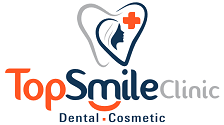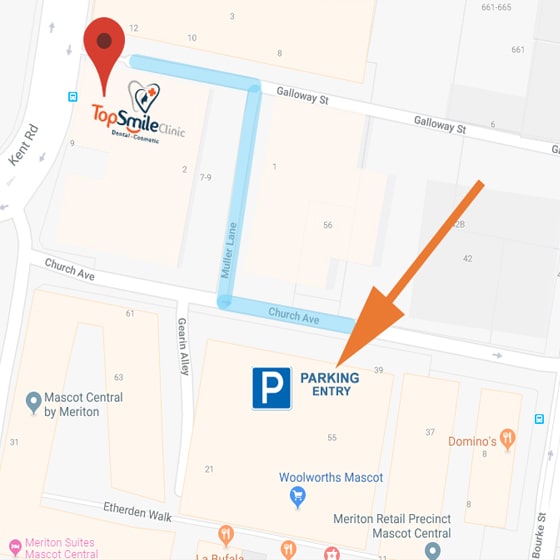Dental Exam

The dental examination is a systematic process during which your dentist will investigate many facets of your oral and systemic health in order to identify pathologies or concerns and develop a uniquely customized treatment plan that is catered towards maximizing your oral health while meeting your goals and ...
Regular dental exams are an important part of preventive health care.
During a dental exam, the dentist or hygienist will clean your teeth and check for cavities and gum disease. The dentist or hygienist will also evaluate your risk of developing other oral health problems, as well as check your face, neck and mouth for abnormalities. A dental exam might also include dental X-rays (radiographs) or other diagnostic procedures.
During a dental exam, the dentist or hygienist will likely discuss your diet and oral hygiene habits and might demonstrate proper brushing and flossing techniques. Other topics for discussion might include lifestyle factors that can affect oral health and possible cosmetic improvements to your teeth.
If you're scheduling your first adult dental exam or you're looking for a new dentist, ask friends, loved ones, neighbours, co-workers or your doctor for a recommendation. Consider whether the dentist has a convenient location and whether he or she participates in your health plan. Before you're treated, make sure you understand the fees and payment options.
If you're anxious about having a dental exam, share your concerns with your dentist or hygienist. He or she might be able to adjust your treatment to help you feel more comfortable.
During a dental exam, the dentist or hygienist will:
Evaluate your overall health and oral hygiene
Evaluate your risk of tooth decay, root decay, and gum or bone disease
Evaluate your need for tooth restoration or tooth replacement
Check your bite and jaw for problems
Remove any stains or deposits on your teeth
Demonstrate proper cleaning techniques for your teeth or dentures
Assess your need for fluoride
Take dental X-rays or, if necessary, do other diagnostic procedures
During a dental exam, your dentist or hygienist will also ask about any health problems you have or medications you're taking and discuss how they might affect your oral health. If you have diabetes, for example, you're at increased risk of gum disease. Any medication that contributes to dry mouth can increase your risk of tooth decay. If arthritis interferes with your ability to effectively brush your teeth, your dentist or hygienist might show you how to insert the handle of your toothbrush into a rubber ball for easier use — or recommend a powered or electric toothbrush.
If you have prosthetic replacements — such as dentures or bridges — your dentist or hygienist will examine how well they fit and discuss the need for adjustments.
Dental exams might also include counselling about diet, use of tobacco products and other lifestyle factors that can affect oral health you prepare
If you're scheduling your first adult dental exam or you're looking for a new dentist, ask friends, loved ones, neighbours, co-workers or your doctor for a recommendation. Consider whether the dentist has a convenient location and whether he or she participates in your health plan. Before you're treated, make sure you understand the fees and payment options.
If you're anxious about having a dental exam, share your concerns with your dentist or hygienist. He or she might be able to adjust your treatment to help you feel more comfortable.
A dental X-ray allows the dentist to see detailed images of your mouth. Various types of dental X-rays are available, including:
Bitewing. This type of X-ray allows the dentist to see the crowns of the upper and lower teeth. During a bitewing X-ray, you'll bite down on the X-ray film holder while the X-ray images are being taken.
Periapical. This type of X-ray allows the dentist to see the entire tooth and the surrounding bone.
Occlusal. This type of X-ray allows the dentist to see the way the upper teeth and corresponding lower teeth fit together when the jaw is closed.
Panoramic. This type of X-ray gives the dentist a broad view of the entire mouth.
Cone beam computerized tomography. This type of X-ray provides a 3-D view so that the dentist can better gauge the spacing of teeth and adjacent structures.
X-rays aren't typically needed at every dental visit. Radiation exposure from dental X-rays is low — but talk to your dentist if you're concerned about radiation exposure.
During your dental exam, your dentist or hygienist will look for signs of oral cancer. He or she will feel the area under your jaw, the sides of your neck, and the insides of your lips and cheeks, as well as examine the sides of your tongue and the roof and floor of your mouth.
In some cases, the dentist might recommend making a dental impression of one or both jaws to produce a replica of your teeth and oral tissue. This can help the dentist or hygienist evaluate your bite or make a mouthguard or bleaching trays.
The dentist or hygienist will fill horseshoe-shaped trays with a soft, gelatin-like material and place them over your upper or lower teeth. After a few minutes, the trays are removed and used to create a dental cast of your mouth. The dentist might also have you bite down on a soft material to record and evaluate your bite.
Results
After your dental exam, the dentist or hygienist will discuss your oral health, including your risk of tooth decay, gum disease and any other oral health problems, and preventive measures you can take to improve and protect your oral health.
The dentist or hygienist will also recommend the best time to return for a follow-up visit. If you're at high risk of tooth decay or gum disease or have other oral health problems, the dentist or hygienist might recommend frequent checkups.ealth.
When it comes to dental exams and professional cleanings, the general rule of thumb is to visit the dentist's office twice a year. Whether or not you are the world's best brusher, having a cleaning done every six months can help maintain oral hygiene and prevent many dental diseases.
One routine dental appointments can be done in an hour or even 50 minutes. Few can be done in less time. There several radiographs that may be required and these alone may take 5 minutes in total depending on the extent. Most dentists will allot up to an hour for a routine yearly examination for patients.
Rethinking the Twice-Yearly Dentist Visit. For decades, dentists have urged all adults to schedule preventive visits every six months. But a new study finds that annual cleanings may be adequate for adults without certain risk factors for periodontal disease while people with a high risk may need to go more often.
If you have good oral hygiene habits and a healthy mouth, your dentist and dental hygienist will probably suggest professional teeth cleaning at least twice a year. Many dental insurance policies will cover two cleanings per year, but few people take full advantage of their benefits
Regular dental exams help protect your oral health and general well-being. A dental exam gives your dentist a chance to provide tips on caring for your teeth and to detect any problems early — when they're most treatable.




















































